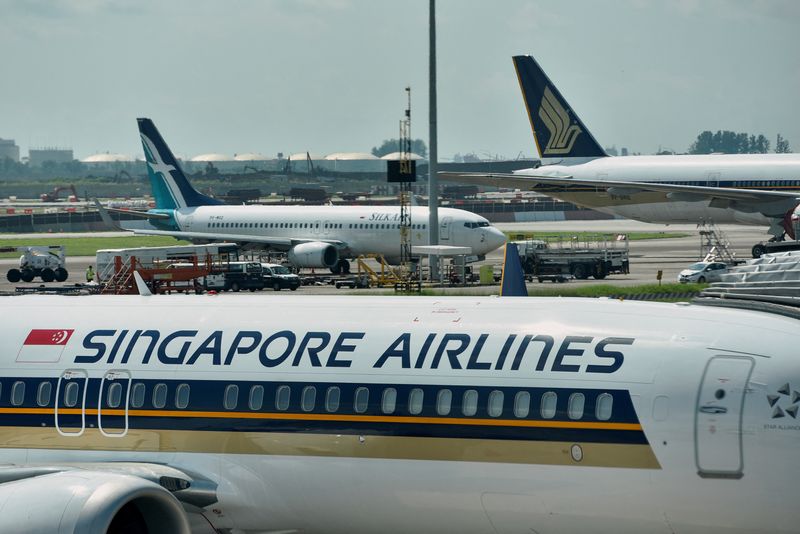(Reuters) – Singapore Airlines (OTC:) on Wednesday warned that a key revenue metric would remain under pressure this year as rising competition crimps average fares and higher fuel costs dent group profit.
Airlines globally have been increasing the number of flights and routes as they rebuild after the pandemic and cater to robust air travel demand, especially during the summer months.
This has resulted in heightened competition, squeezing airlines’ margins as ticket prices take a hit and fuel costs rise.
“The global airline industry continues to face challenges from increased competition, supply chain constraints, inflationary pressures on operating costs including from airports and service providers, and geopolitical uncertainties,” the airline said.
“Passenger yields are expected to stay below the previous year’s levels as more capacity enters the market, particularly in the Asia-Pacific region,” it added.
The yield, a measure of flight profitability, fell 4.6% in the June quarter to 10.3 Singaporean cents per kilometre from 10.8 Singaporean cents a year earlier.
This is the company’s first results announcement after a London-Singapore flight ran into severe turbulence on May 20, causing dozens of injuries and a death.
The airline in June made offers of compensation to passengers on that flight.
In the quarter ended June 30, the company’s expenditure jumped 14% from a year earlier to S$4.25 billion ($3.17 billion), as fuel expenses surged 30%.
This hurt the flag carrier’s income, which fell to S$452 million from S$734 million a year earlier, and missed the Visible Alpha consensus of S$504.6 million.
Capacity grew more than passenger traffic and the passenger load factor — a measure of how many seats are filled on planes — for the group as a whole was 86.9%, compared with 88.9% a year earlier.

Singapore Airlines Group includes Singapore Airlines and budget carrier Scoot. (This story has been corrected to change the picture)
($1 = 1.3387 Singapore dollars)

